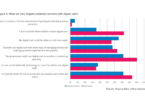On Christmas eve, the Bank of Thailand held a media briefing in which it announced the postponement of its retail central bank digital currency (CBDC) pilot to late 2022. It had previously set a target of Q2 2022 after it awarded a contract to Germany’s G+D in June.
During the briefing, the bank emphasized what it sees as the four key benefits of a CBDC, including ‘risk-free’ digital money. It believes a digital currency will reduce payment costs by removing intermediaries for P2P payments, and at the same time, it will enable interoperability between different payment systems and service providers. Finally, programmable money will encourage innovation.
The central bank previously stated that it would adopt a two-tier approach, distributing the currency via financial intermediaries. The pilot will target 10,000 consumers.
Meanwhile, the bank reiterated its dislike of cryptocurrencies. That’s despite some of Thailand’s largest commercial banks, such as Siam Commercial Bank, embracing the sector with massive investments.
Thailand’s central bank has been at the forefront of digital currency experiments, starting with Project Inthanon. It was the initiator of the current M-CBDC Bridge project, which involves the Hong Kong Monetary Authority (HKMA), People’s Bank of China, the Central Bank of UAE and the BIS. M-CBDC Bridge is a wholesale CBDC project for cross border payments, which started as a joint project with HKMA and then expanded.
Meanwhile, China’s digital yuan pilots are entering the latter phase with the launch of the wallet on the mobile app stores of Apple and Android in readiness for the Winter Olympics. In December, the central bank extended cross border digital yuan trials with Hong Kong by linking to Hong Kong’s faster payments system.






